Disclaimer: Website Under Maintenance: Our website is currently under maintenance. We apologize for any inconveniences.
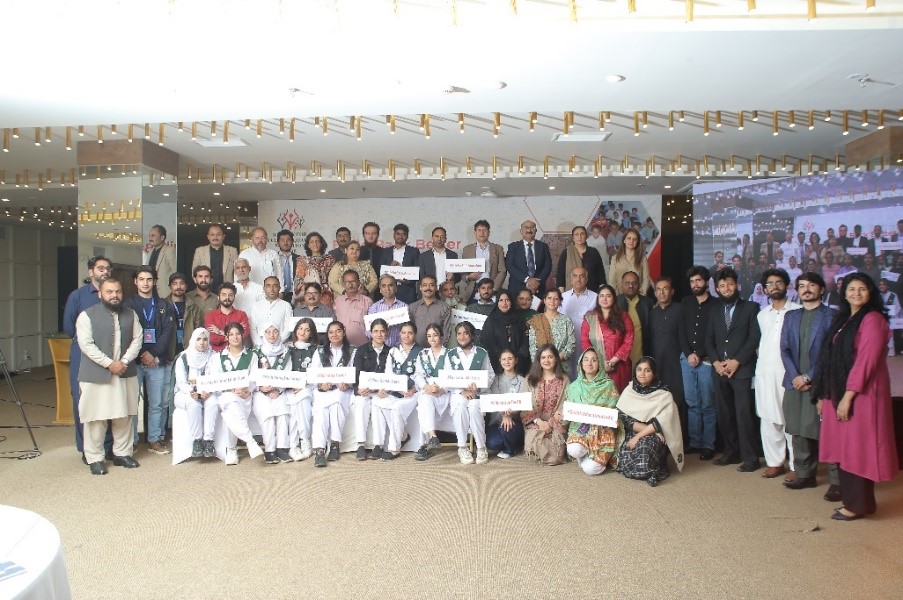
As the elections are approaching, it's imperative that the agenda of education takes center stage in political discourse. Carrying this forward, Pakistan Coalition for Education (PCE) an initiative of the Society for Access to Quality Education (SAQE) organized its 14th annual convention at the Roomy's Signature Hotel on the theme 'Build Back Better: Transforming Politics, Policy, and Practice'. The event featured two sessions, the first comprised of a dialogue with youth while the second session included a policy discussion with experts.
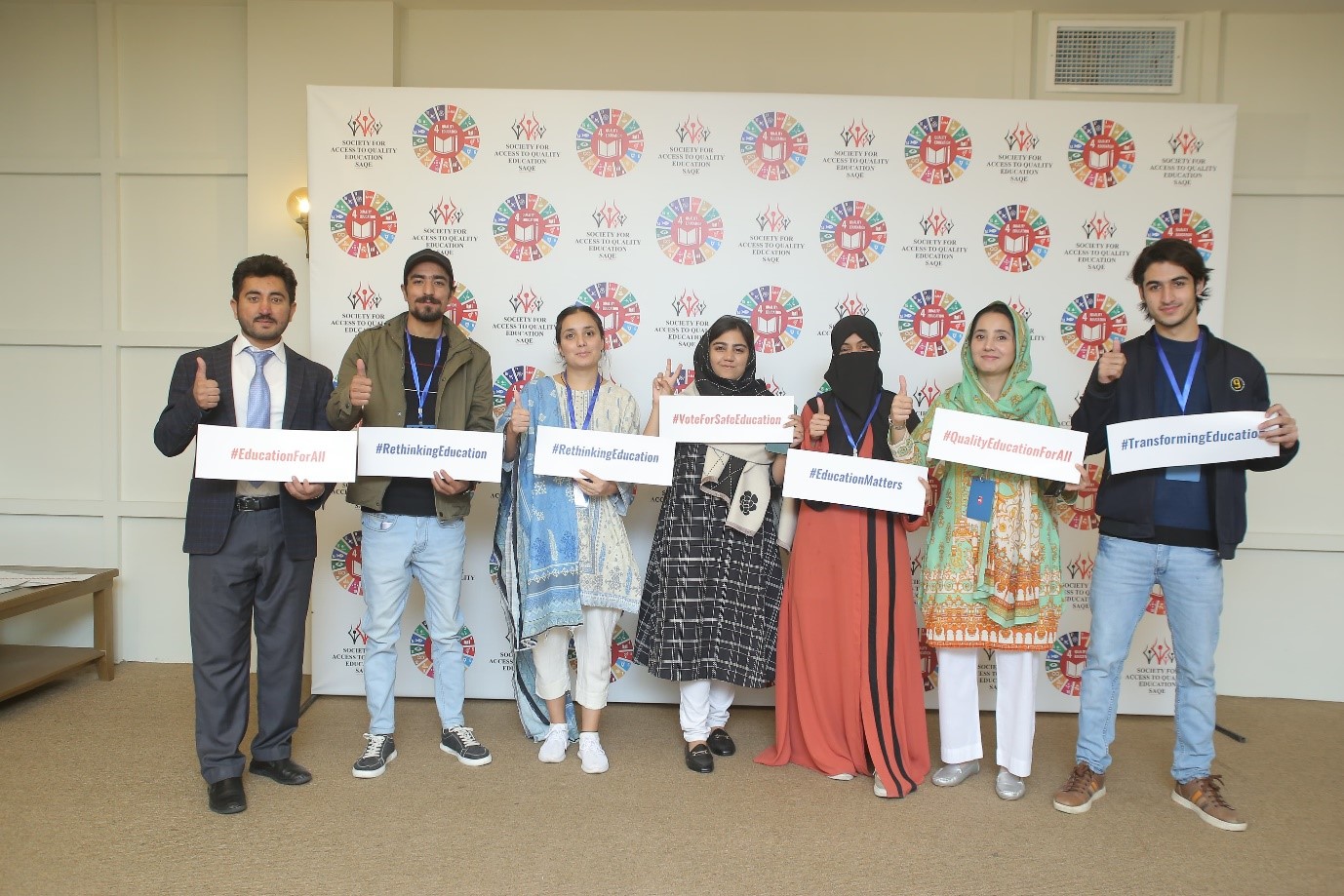
In the first session we organized a dynamic youth dialogue which brought together a diverse audience of enthusiastic young people, seasoned educators, prominent members of civil society organizations, education experts, and passionate advocates. The main aim of the gathering was to foster an inclusive and in-depth conversation about education reforms, with a special emphasis on the crucial role that young people play as key stakeholders.
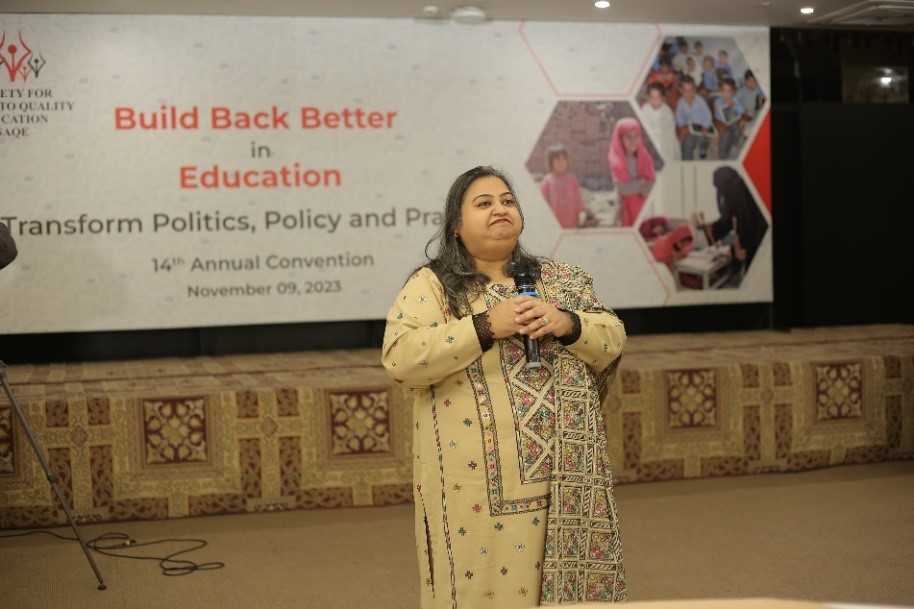
Ms. Zehra opened the dialogue by welcoming the participants and setting the tone by urging youth to actively voice their thoughts on education challenges. She said,
"There is a strong disconnect among youth and other stakeholders. We are trying to bridge this gap"
She also stressed the importance of political leaders prioritizing education and called for a common "Charter of Education". She drew attention to the increasing number of out-of-school children in the country and urged for an education emergency to address this issue.
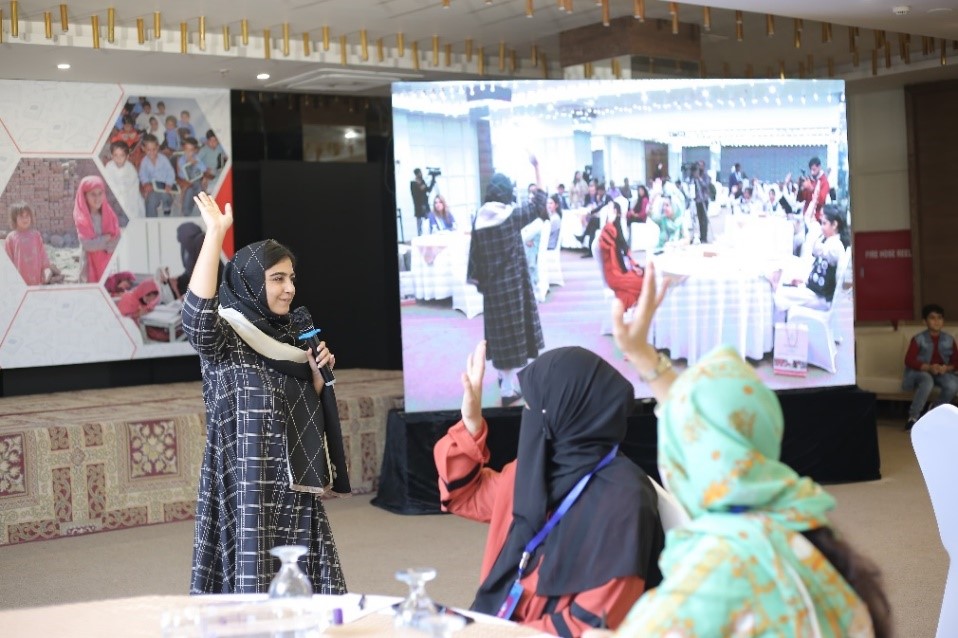
Ms. Urwa Naeem connected with our dynamic youth, providing insights into the current state of education in Pakistan. She emphasized the importance of understanding education policies and stressed on educating girls to empower them to understand their rights. She mentioned:
"The staggering 50% literacy rate of women in Pakistan needs to be addressed, as without basic literacy, they lack the essential ability to comprehend, demand and exercise their rights"
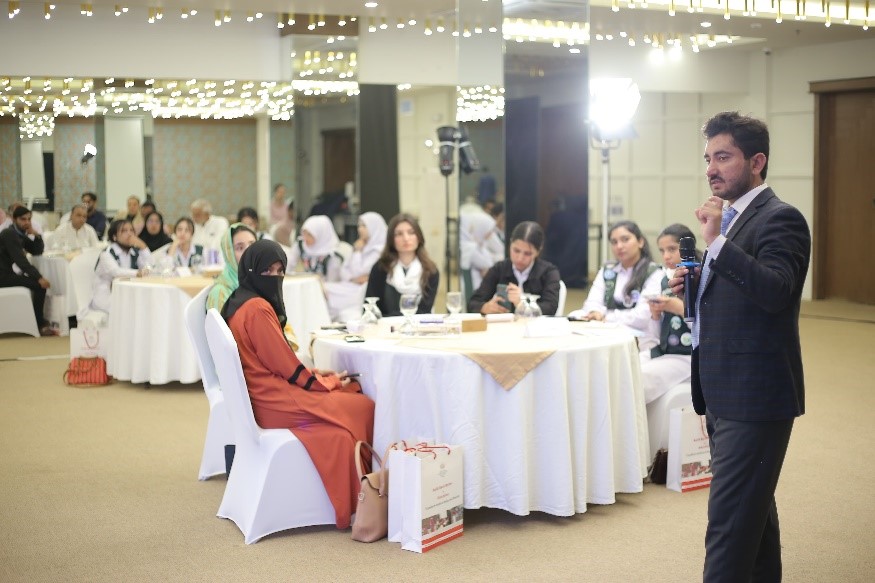
Mr. Nouman Alam delved into resilience in education, highlighting the necessity for actionable emergency response plans. He shed light on the devastating impacts of disasters on the education system of Pakistan and called for increased funding and awareness to curb these issues. He said:
"One of the biggest dilemmas of Pakistan is that whenever we face a disaster, education is the most affected sector. We have no plans for disaster management that's why we lack resilience in education"
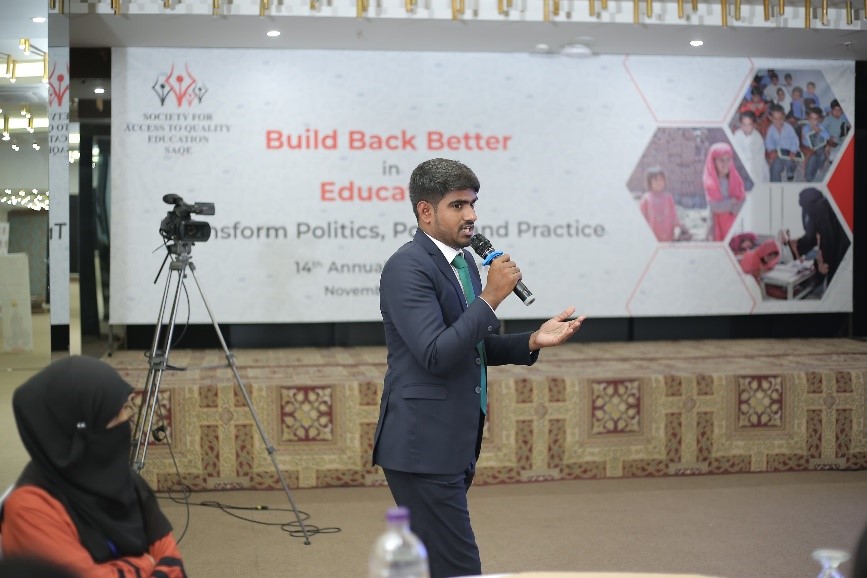
Passionately advocating for empowering tomorrow's leaders, Mr. Muhammad Irfan Sultan stressed the pivotal role of the younger generation in shaping the educational landscape through active participation. He also shared some best practices which could be followed to enhance youth participation in education. He stated:
"Youth involvement in policy making is the dire need of time!"
During the interactive session, we conducted a productive write-shop activity with our youth. These young participants, hailing from diverse backgrounds, collaborated to formulate innovative solutions in various domains of education, ranging from Resilient Education and Safe Education to Technical and Vocational Education, and Gender and Inclusivity. Following are the key takeaways of the activity
With great zeal and fervor, the young activists presented their well-thought-out ideas and lobbied for greater participation of youth in shaping education reforms. Additionally, they stressed the need for establishing effective channels to mobilize youth engagement and guarantee that their voices are adequately represented and heard.
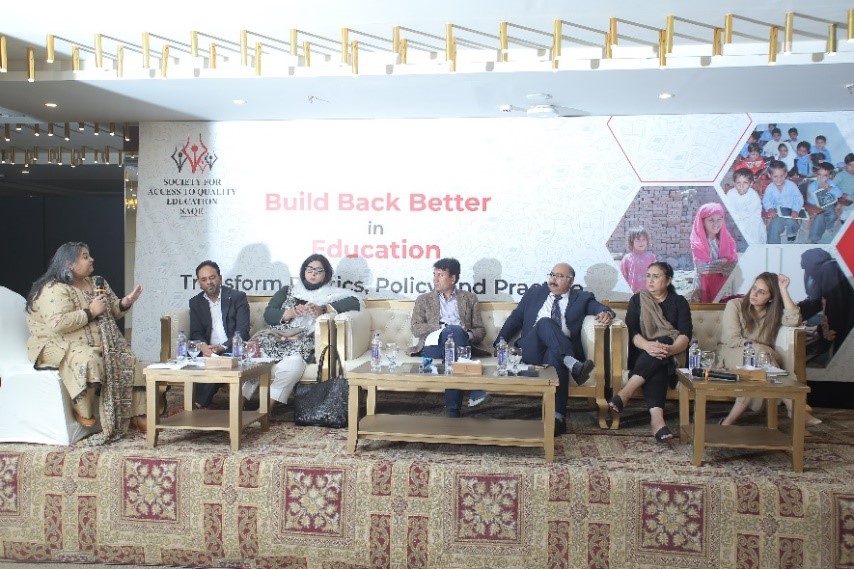
The second session featured a policy discussion on "Transforming Politics, Policy and Practice" and brought together key figures to discuss pressing issues in education. Ms. Zehra Arshad, Executive Director of SAQE, set the context by outlining the session's objectives. The session aimed to delve into transformative measures in politics, policy, and practice within the realm of education. The overarching goals included fostering inclusivity, enhancing access, and fortifying the resilience of the education sector. This session aimed to inspire actionable strategies and collaborations that could contribute to positive, lasting changes in the landscape of education in Pakistan.
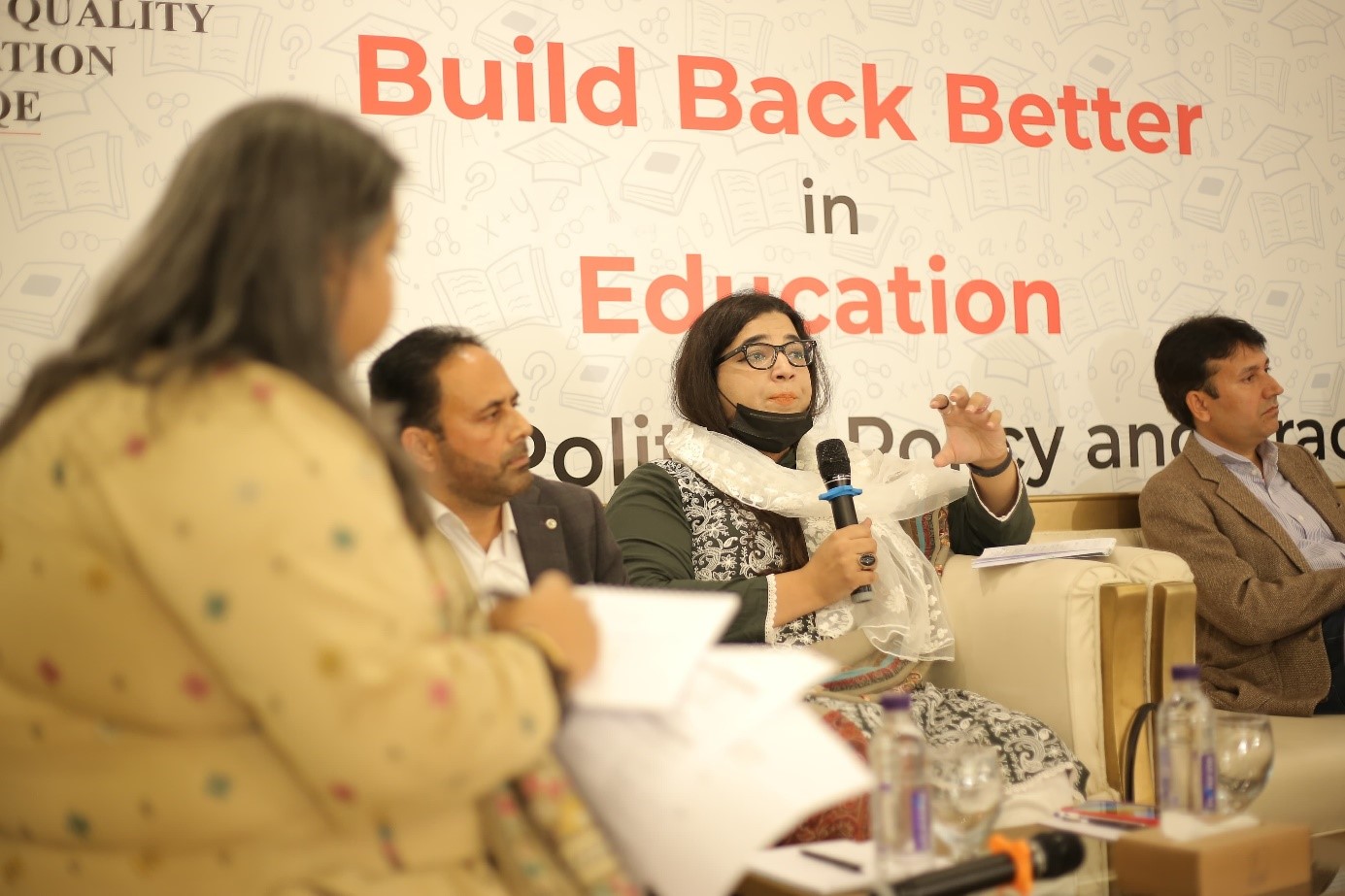
Ms. Nayyab emphasized the critical need for inclusivity in transgender education, pointing to a troubling 19% literacy rate and 81% exclusion. She highlighted the Transgender Rights Protection Act's existence but expressed concern over its insufficient implementation and admission quotas. Addressing prevalent bullying and harassment, she attributed the challenges faced by transgender individuals to the lack of education in the community. She called for enhanced stakeholder engagement in policy design and demanded social protection measures for transgender individuals from the state.
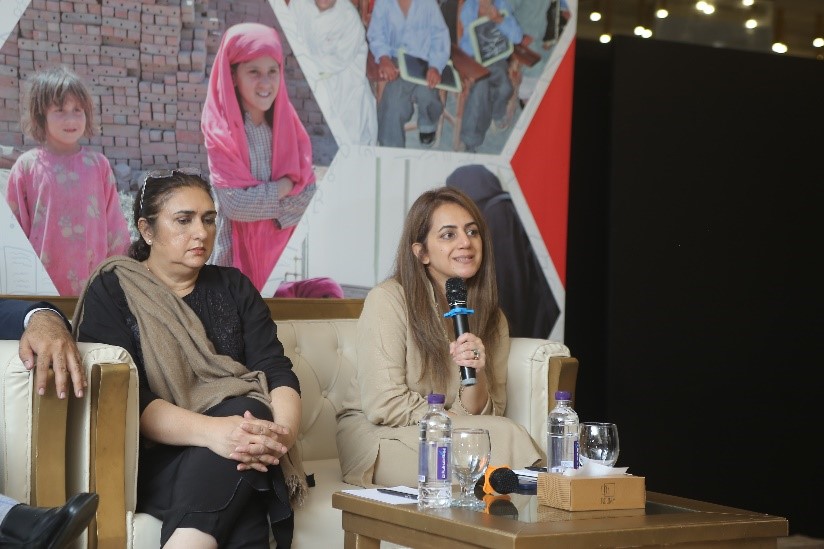
Ms. Izza emphasized the need to enhance access to learning, particularly for girls, advocating for model schools with proper infrastructure. She highlighted the alarming 78% learning poverty rate in Pakistan and urged that we should accept multi-grading and focus on teacher training and the provision of resources. She stressed that a fifth-grade student should master basic reading and math skills. Additionally, she underscored the importance of incentivizing girls' education, monitoring their progress, and allowing teachers to focus solely on their educational duties without additional responsibilities like polio campaigns or elections.
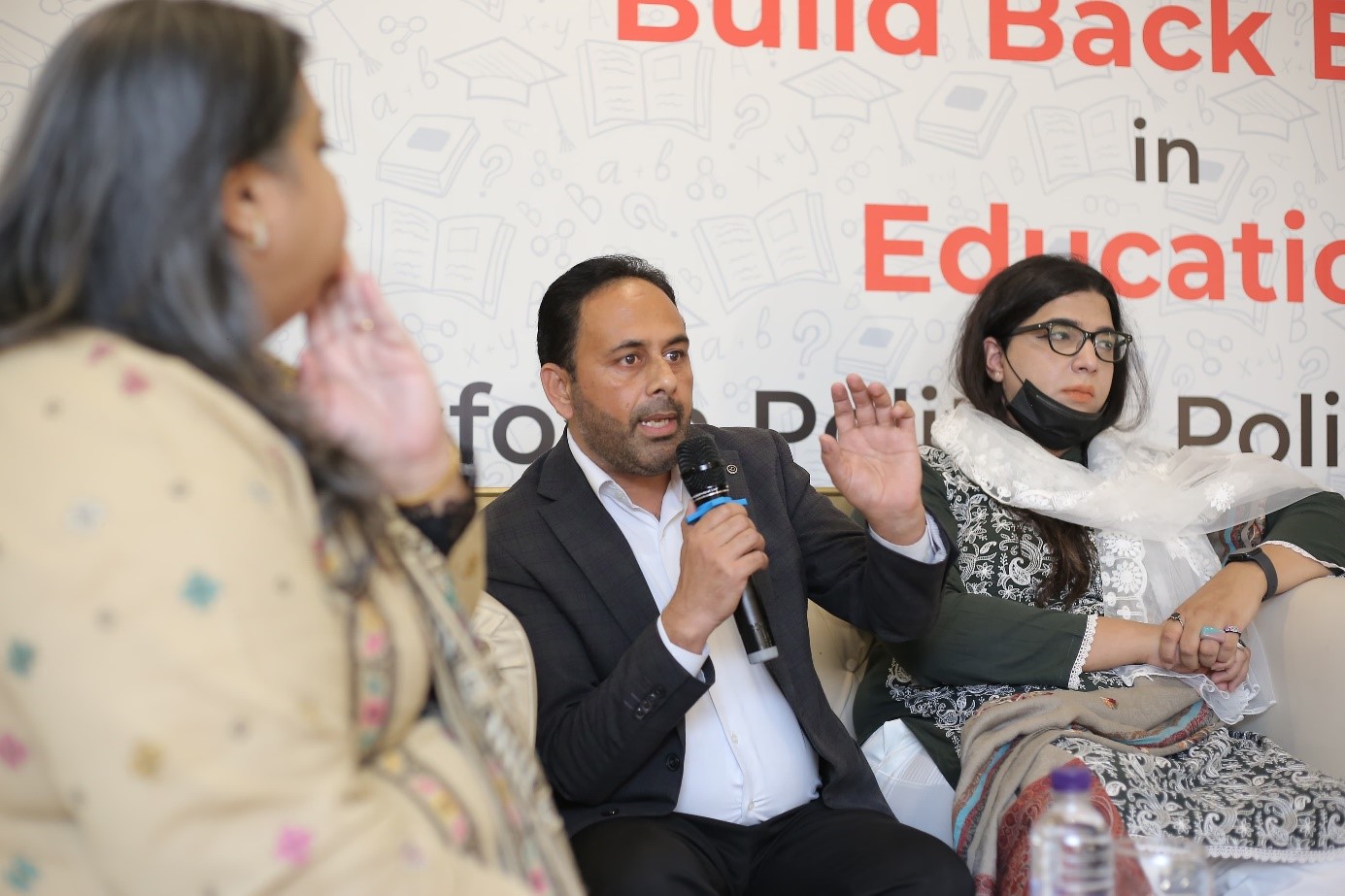
Mr. Itfaq addressed the critical issue of including children with disabilities in the education system. He highlighted that a significant majority of out-of-school children in Pakistan are those with disabilities, facing extreme exclusion. Children with disabilities encounter stigma and are excluded from the policy-making process. He advocated for accessible school infrastructure and emphasized the necessity of policies to address this issue. He stressed the importance of teacher readiness and the need for reliable data, sharing ongoing collaborative efforts with stakeholders to gather verified information on children with disabilities in Pakistan.
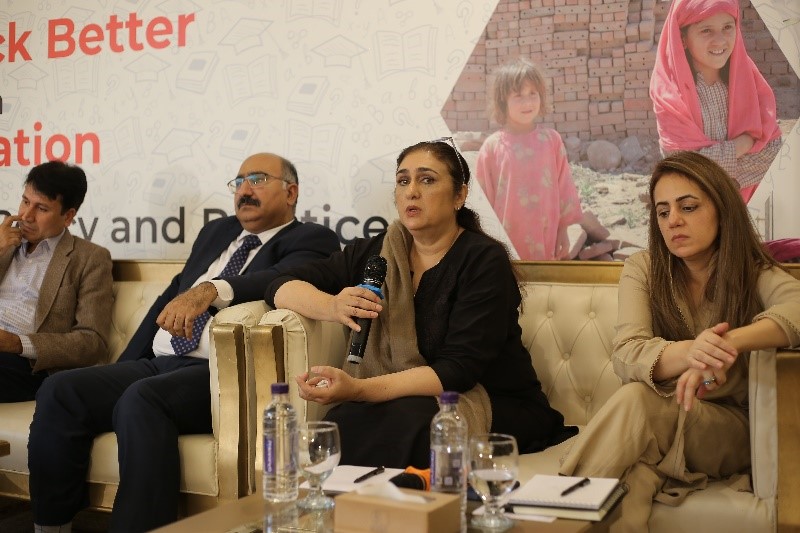
Ms. Rahat emphasized resilient education and actionable emergency plans, addressing various crises like heatwaves, droughts, floods, earthquakes, and smog affecting Pakistan's education system. While acknowledging existing responses, she stressed the need to prioritize education in emergency situations. She highlighted a gap in strategies to address emergencies and advocated for empowering local governments for effective response. She also emphasized the importance of school buildings being designed to withstand disasters vulnerabilities.
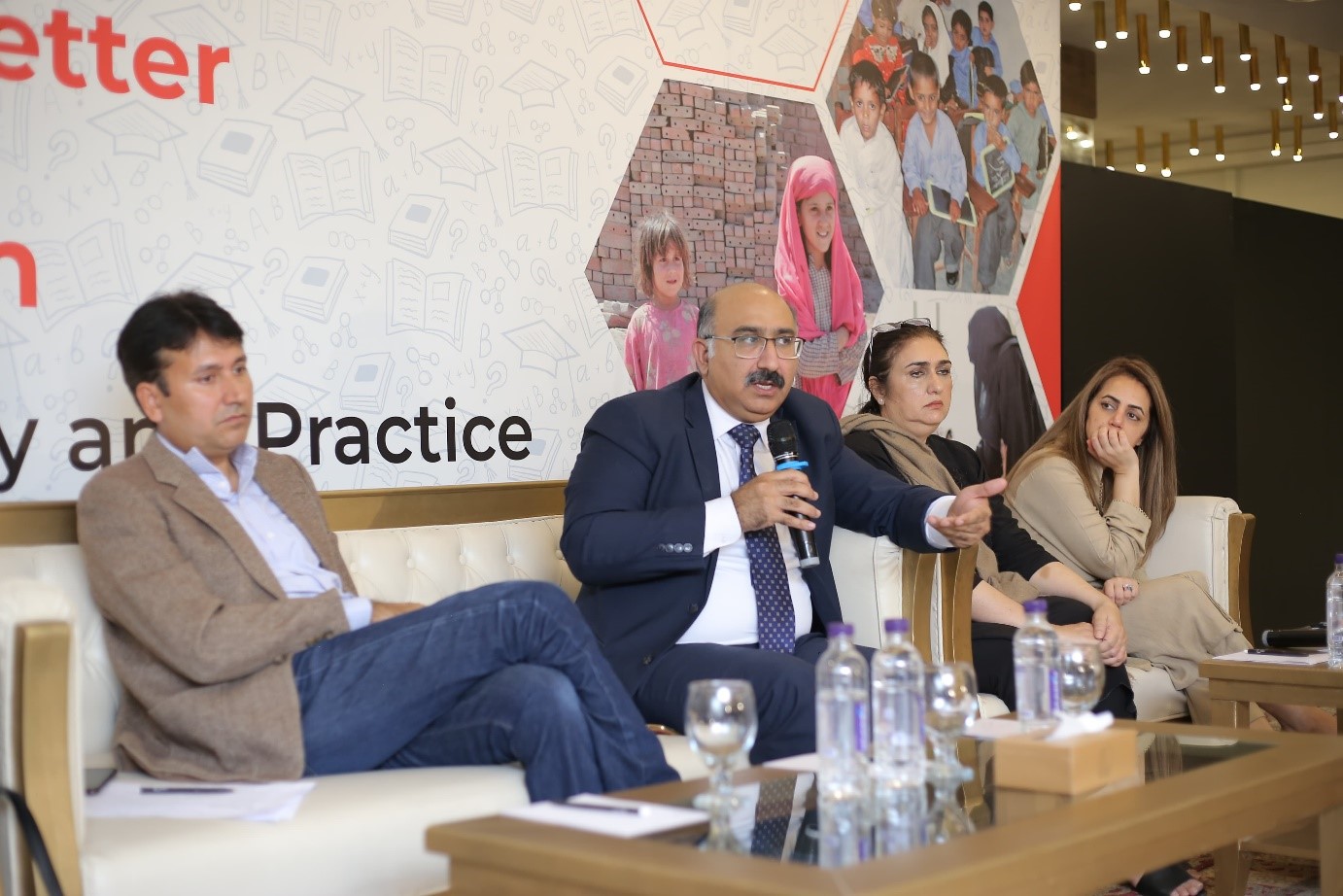
Dr. Shahid highlighted the institution's vision and mission, emphasizing the historical challenge of data collection with varying indicators across provinces. He stressed the importance of standardized real-time data for decision-making and policy formulation. He announced the approval and nationwide implementation of a data standardization framework. He also shared the success of the zero out-of-school campaign in Islamabad, where 70,000 out of 80,000 initially out-of-school children have been enrolled. The real-time data will be publicly accessible on PIE's open data portal via their website.
Dr. Jehangir underscored the imperative for comprehensive education reforms. Emphasizing the necessity of innovative financing models, he highlighted the importance of informed policy decisions and collaboration among stakeholders. Dr. Khan stressed that a multifaceted approach, incorporating financial innovation, well-informed policy frameworks, and collaborative efforts, is essential for bringing about effective and sustainable reforms in the education sector. His insights underscored the complexity of the challenges faced by the education system and the importance of a holistic strategy to address them.
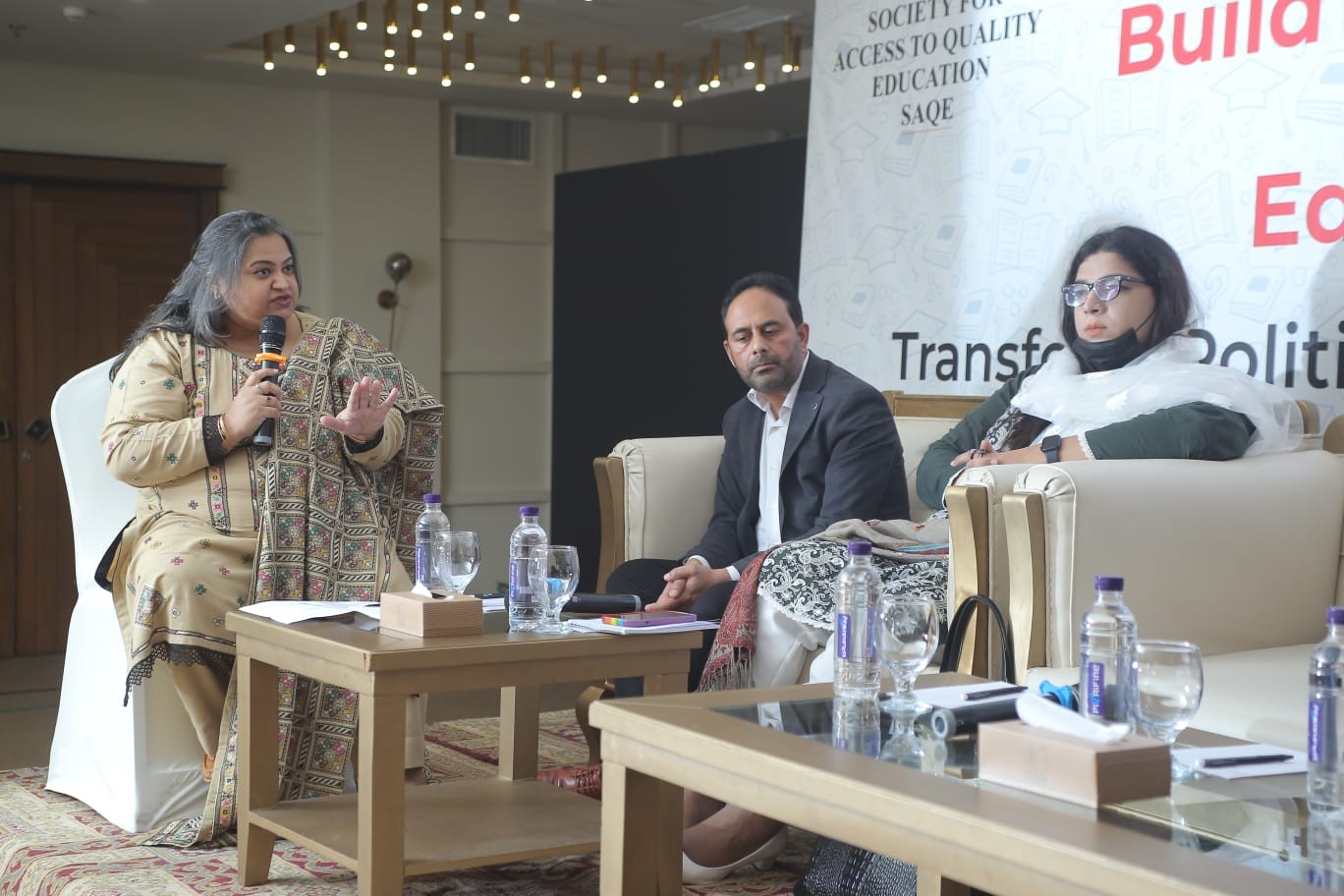
In closing, Ms. Zehra Arshad, Executive Director of SAQE, unveiled a comprehensive 'Charter of Demands' developed in consultation with education stakeholders at the grassroots and urged decisive actions for educational transformation. She emphasized the role of informed policies, increased government education budgets, and private sector involvement. She called for political party representatives to mainstream education reforms for effective change in Pakistan and emphasized the need of an 'Education Emergency' to be declared along with consensus on a common 'Charter of Education' by leaders.